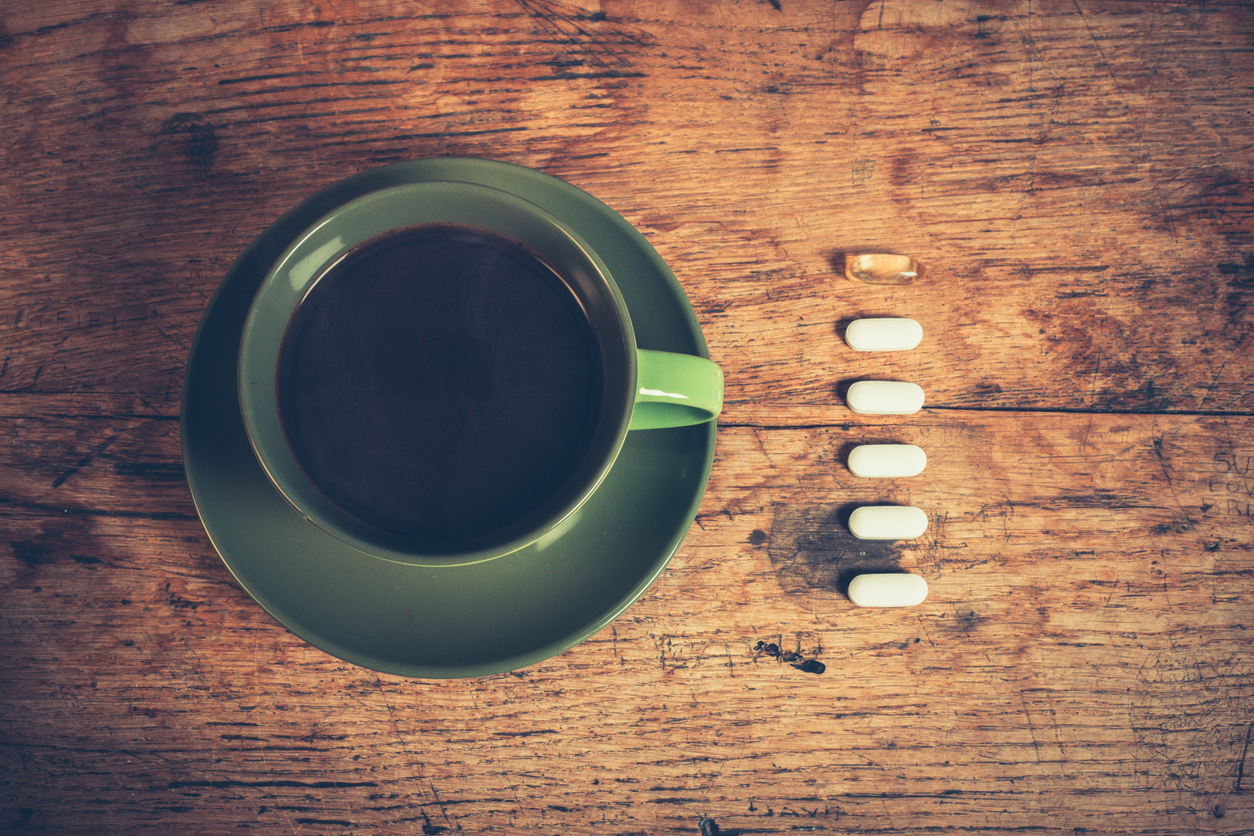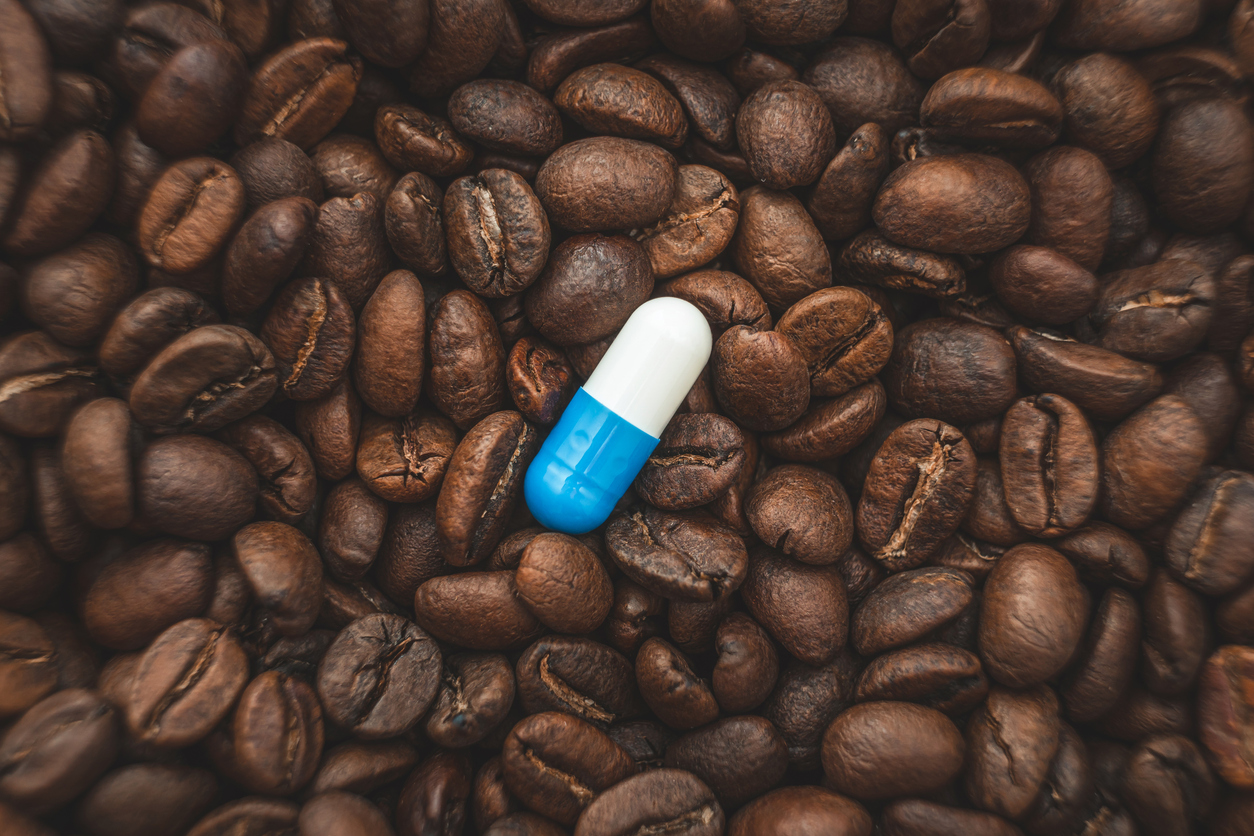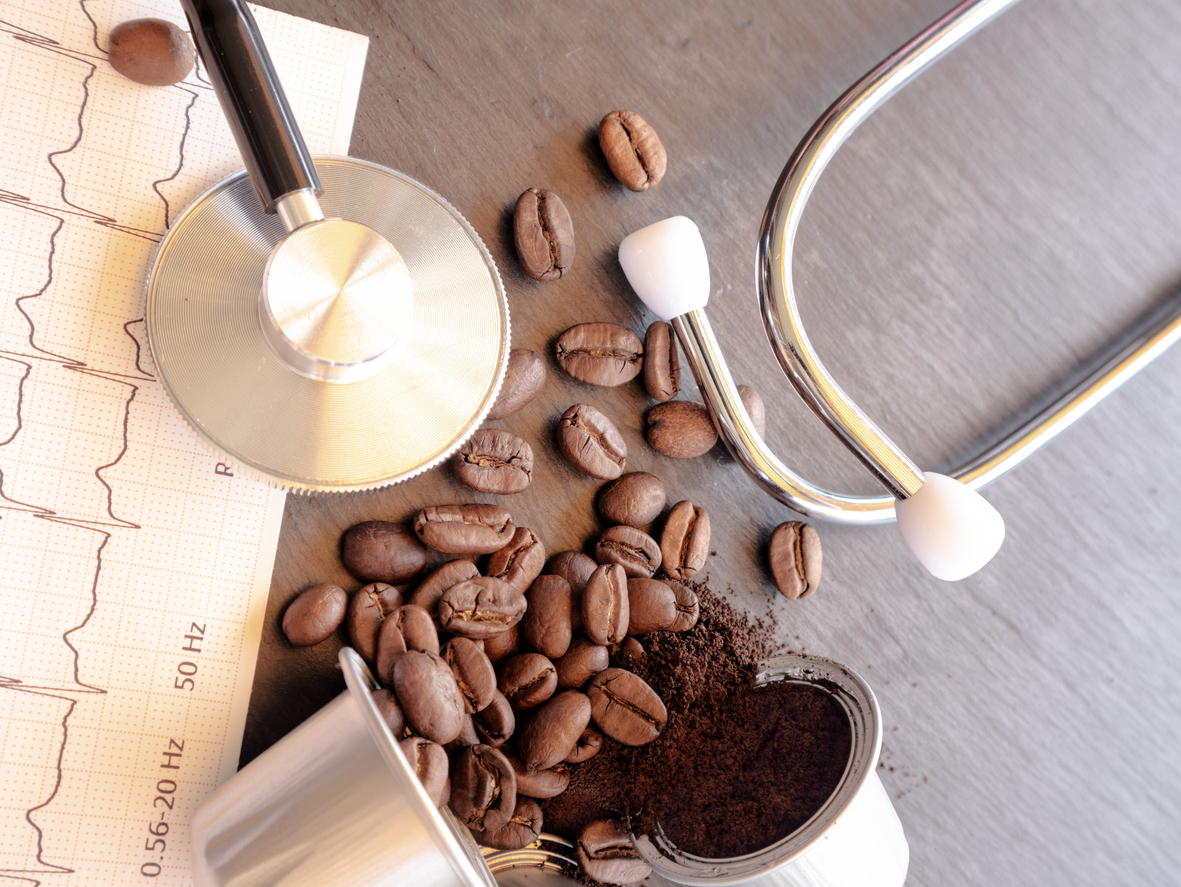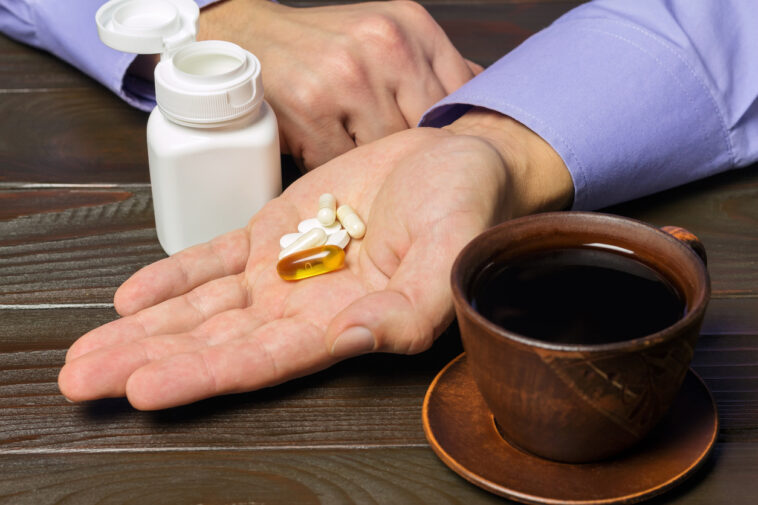Prized for its rich taste and its stimulating properties (especially in the morning when you don’t really have your eyes open due to fatigue), coffee is one of the most consumed drinks in the world. Some even go so far as to consume it at several times of the day to prolong the pleasure. However, be wary of medical treatment! The popularity of this popular beverage should not obscure the fact that it can interact with certain medications. Due to its content of caffeine and other compounds, coffee may alter the absorption and effectiveness of certain treatments. It is therefore essential to be aware of these interactions to avoid unwanted effects or a reduction in therapeutic effectiveness, which could harm your health. Discover the medications to avoid with coffee and tips for consuming this drink without risk.
To be completely up to date, do not hesitate to reread our article on foods that can create interactions and other drinks to avoid when taking treatment. This will help you avoid unforeseen side effects and unwanted effects!
Antidepressant or antihistamine medications do not go well with coffee
Caffeine may interact with some antidepressants, including selective serotonin reuptake inhibitors (SSRIs). These medications, used to treat depression and anxiety, can indeed increase the stimulating effects of caffeinewhich then risks leading to symptoms of anxiety, nervousness or insomnia. Additionally, caffeine may also reduce the effectiveness of some antidepressants by speeding up their metabolism in the liver. It is therefore better to limit your coffee consumption when you take it.
The same goes for the medications for allergies or colds which sometimes include active stimulant compounds such as pseudoephedrine which acts on the central nervous system. Coupled with the already stimulating effect of coffee, this mixture may keep you awake and make you restless.

On anticoagulants? In this case, beware of caffeine!
Anticoagulants, such as warfarin, are used to prevent blood clots from forming. However, excessive coffee consumption can increase the risk of bleeding by affecting blood clotting. In particular, studies have shown that caffeine can interfere with the effectiveness of warfarin by making treatment management more complex. People on anticoagulants should generally moderate their coffee consumption and discuss their diet with their doctor to avoid any risk.
Coffee and antibiotic medications: a combination to avoid
Some antibiotics, such as fluoroquinolones and tetracyclines, may also interact with caffeine. The latter can reduce the absorption of these drugs and thus reducing their effectivenessbut also increase the harmful effects of these treatments (risk of toxicity and side effects). For example, tetracycline can bind to caffeine in the stomach, limiting its absorption. These medicinal substances may also reduce the normal elimination of caffeine from your body. It therefore stays in the body longer and can then cause increased side effects related to overdose (increasing heart rate, headaches, palpitations, etc.).
Coffee and blood pressure medications
Caffeine can cause a temporary increase in blood pressure, which can counteract the effects of antihypertensive medications. If you are taking medication to control your blood pressure, it is therefore important to monitor your coffee intake, as high levels of caffeine can make it more difficult to control blood pressure.

Medications for diabetes, Alzheimer’s and hypothyroidism
Between milk and the sugar added to coffee, blood sugar levels can skyrocket and this can affect the effectiveness of treatment or even worsen symptoms. It should also be noted that there are interactions with drugs against Alzheimer’s disease, caffeine modifying the way our body metabolizes them. Finally, be careful with those taking levothyroxine for their thyroid, as caffeine reduces absorption and makes it less effective.
Coffee and caffeine: other drugs affected
If caffeine can increase the effect of acetaminophen and over-the-counter anti-inflammatory pain relievers (aspirin and ibuprofen in particular). However, because both coffee and decaffeinated make stomach contents more acidic, they will often make medications less effective and have uncertain effects. This applies to medications for the heart as well as those intended to treat asthma and stomach problems as well as diuretics. Finally, according to Ameli, a anti-asthma treatment with theophylline can also cause adverse effects when consuming caffeine, as the two substances can have comparable effects.
Here are tips for consuming caffeine safely while on treatment

To enjoy caffeine without compromising your treatment, you can follow some practical tips. First of all, ask about potential interactions between your medications and caffeine. You can consult your doctor or ask your pharmacist for personalized advice.
In all cases it remains preferable to limit your coffee consumption to one or two cups per day, especially if you are under treatment for chronic conditions. Also favor decaffeinated coffee when possible to reduce your caffeine intake, knowing that you should not do not overdo it either, because it can also make the contents of the stomach more acidic and therefore affect the absorption of drugs!
Also try to consume your coffee away from taking your medications. For example, wait at least an hour after taking your medication before drinking your coffee. Most importantly, pay attention to how your body reacts and note any unusual symptoms that you can discuss with your healthcare professional to ensure safe coffee consumption during your treatment.
Finally, a little reminder if necessary that there is other sources of caffeine like soda, tea, and chocolate which can insidiously increase total caffeine intake and therefore worsen adverse effects. The ideal is therefore to monitor your overall caffeine consumption during your medical treatments.


